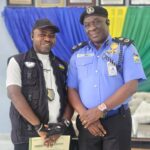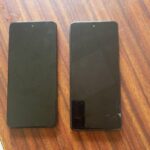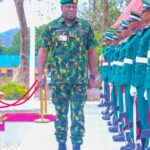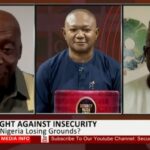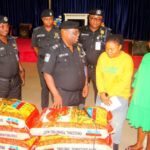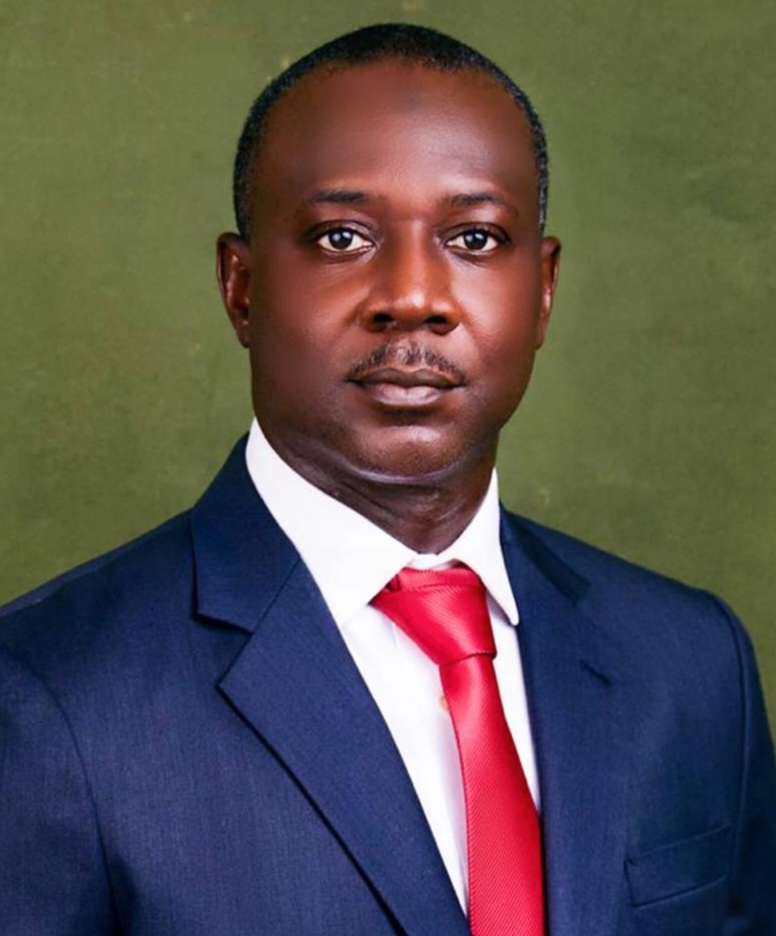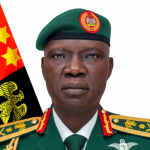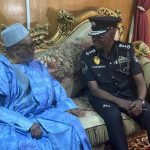By Augustine Ehikioya
Security situations across the globe, no doubt, have been compounded in recent times by increasing accessibility by wrong hands to illicit small arms and light weapons.
Even the world powers, like the United States of America with topnotch security architecture in place, are not immune against it as they had experienced sporadic shootings in supermarkets and other public places, irrespective of whether the weapons used were licensed or not.
The sub-saharan region spreading from the Northern part of Africa down to the West African countries bordered by the Atlantic Ocean in the south have also had increasing menace of proliferation of small arms and light weapons.
The negative effects of the menace, over the years, have been devastating on the various African countries, particularly the innocent and law-abiding citizens.
In Nigeria, the proliferation had made it possible for some evil activities, like banditry, terrorism, kidnapping and armed robbery to triumphed more in recent past years.
Worried by the security implications of the menace, the Economic Community of West African States (ECOWAS), sought its fifteen member states to put in place formidable structures that will check the inflow and circulation of illicit small arms and light weapons in the region.
But sadly as at today, only the ‘Big Brother’, Nigeria, is yet to have a legal framework to back up its structure among the 15 ECOWAS member States.
Under former President Goodluck Jonathan, the tangible structure put in place was Ad-Hoc in nature, as the Presidential committee only met from time to time to assess the flow of illicit small arms and light weapons into the country.
Former President Muhammadu Buhari in the year 2021, following ECOWAS Convention, put in place an improved structure to fight the proliferation of small arms and light weapons into Nigeria by creating the National Centre for the Control of Small Arms and Light Weapons (NCCSALW).
While so much exploits and achievements are being recorded by the Centre in the past two and half years towards steming the circulation of illicit small arms and light weapons in Nigeria, it is however still not backed up by any legal framework, unlike other structures already in place in the neighboring West African countries.
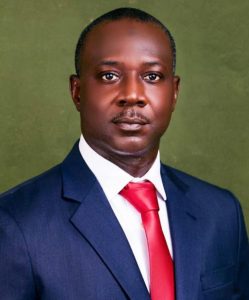
Speaking on the challenge, the National Coordinator of the NCCSALW, Major General Abba Muhammed Dikko (Rtd.), who spoke on a number of issues in exclusive interview with Security Watch Africa (SWA), said “I think it’s not about delay. It’s about what are the structures that are on the ground, functional structures that are on the ground, to even facilitate the passage of the bill. And I’m very happy that within the last two and a half years that the Centre came into existence, so much has been achieved, even at the level of the ECOWAS commission itself.
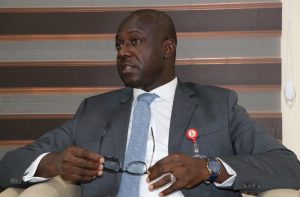
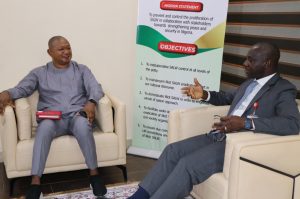
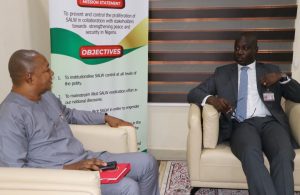
“And they have acknowledged the giant strides that Nigeria has taken through this arrangement in order to address this problem of the proliferation of small arms and light weapons. It is a matter of time, before this process are concluded.”
Noting that there have been significant progress in the consideration of the bill at the National Assembly, he said “I know that at the lower chamber which is the House of Representatives they have already passed the bill. It is currently at the Senate for concurrence and I think it has also gone through the first reading.
“So hopefully, before the year rolls out, in no distant future that will be concluded and it will be passed to the executive for assent by the President. This is an executive bill so it should receive favorable welcome at the executive, once it is done at the National Assembly.
“But now, we are functional, irrespective of the bill. There has been tremendous support to the takeoff of the Centre. We are fully on the ground. And we’ve hit the ground running around from day one. The Centre has its headquarters in Abuja. But then we also have six offices in the Six geopolitical zones.
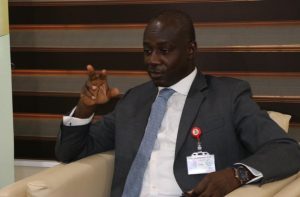
“We have the North Central office in Minna. We have the North West Zonal office in Kaduna, the North East zonal office in Maiduguri, the South East zonal office in Enugu, the South West zonal office in Ado Ekiti, and the South South zonal office in Calabar. These are offices that are functional, that have been working along with other security agencies to address this particular problem.
“So we hope that this work that we’re doing so far, with the minimal staff that we have, would even encourage the consideration of the bill and its passage. So I think we’re quite encouraged by what is happening, but at the same time, we are also focused on doing what we’re supposed to do, which is to ensure an arms free society, and we have so many objectives that is guiding that.
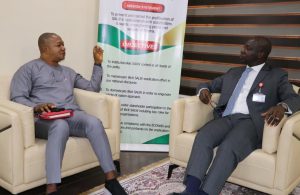
“The fact of the matter is that this is an establishment of government, that was an Executive Order of the President then President Muhammadu Buhari on the Third of May, and I resumed as the national coordinator on the sixth of May. And since then, we’ve been up and running and functioning, ” he stated.
Dikko, who was a former Theatre Commander of Operation Hadin Kai, which was formerly called Operation Lafiya Dole, also kicked against the calls in some quarters for Nigerians to be allowed to bear arms for self defense and other reasons.
According to him, heeding such calls is a dangerous trend for Nigeria.
Warning that care should be taken not to generalizing it, he explained that the Firearms Act domiciled with the Nigeria Police Force has clearly enunciated the various categories that can acquire a weapon that is licensed, with clear directive on what a citizen can hold and what a citizen cannot hold.
“But by and large, I think irrespective of the caliber and irrespective of the type, this is not time that we should be thinking about everybody should be in possession of weapon. It’s a very dangerous trend for those of us who are from the military background.
“There is a program in the military. Once you join the army or the military, it’s called ‘It could be you’ . That program, it could be you tells you that the same weapon that you think is your instrument of protection is also an instrument of your destruction. So you have to be careful.
“For us, we are very very careful in the handling of weapons as military, very, very meticulous in the handling of these weapons. It requires a lot of training. Forget about the fact that when you press the trigger a bullet leaves the chamber of your weapon, there is more to it than that. So let us not be trigger happy and begin to think that that is the only thing that defines security and protection.
“What defines security and protection is for you to say no to criminality, for you to say no to anything that would be adjudged as aiding and abetting the breakdown of law and order.
“So I will advise those people that think that they are advocating for some kind of weapons free society or whatever, to stop deceiving people and stop dragging innocent youth into that self deceit,”
Replying those claiming to be doing similar work with the Centre, he said “As far as I’m concerned, if you are a person of national conscience and a patriotic Nigerian, you cannot continue to play on the sensitivity of our youth, our population that are in dire need of meaningful engagement, and continue to encourage them to believe that there is some kind of institution other than what government has established.
“You are just deceiving people and then you at the same time aiding and abetting these kind of crimes that are going on.
“And that kind of pot of corruption that is going on because it is corruption for you to go and set up an institution and then you have no respect whatsoever for the government of the day. And you are deceiving Nigerians youth and recruiting them to nowhere.
“We’ve received those reports. People have called us here to confirm whether we are recruiting. Please don’t deceive Nigerians, don’t aid banditry and other kinds of criminalities. It means that you have an ulterior motive. Those of you who are doing this means you want the state to fail.
“The issue of the proliferation of illicit small arms and light weapons is the singular thing that is the main catalyst that is driving insecurity in Nigeria. It should not be toyed with. It should not be played with. People should not be dropping names all over the place and carry paraphernalia all over the place and thinking that is what it is. It’s more than that,” he added.
On the other challenges facing the Centre, the National Coordinator, said he doesn’t focus on challenges but on how to mitigate the challenges, by displaying positive attitude towards everything in life.
Stressing that there are challenges in every organization and every setup, he said “Challenges at this embryonic stage is bound to happen. We are just two and a half years old, getting to three years. So definitely we are bound to have institutional challenges. We’re bound to have manpower challenges, we are bound to have all sorts of challenges that you can think of.
“But we make do with what we have. And that is why we partner with all security agencies in Nigeria. There is no security agency that we have not partnered with that, that we have also not created a platform as an entry point into this whole gamut of stockpile management.
“We have developed training modules, along with our key partners to help all these arm-bearing security agencies to develop the skill for proper management of their holdings. And we’ve established data base, where in no distant future all the holdings of all security agencies you will have it at the press of a button.
“We’ll be able to see what is the national holding of our weapons system, which is a requirement, but at the same time, it is also good for purposes of decision making to know how the government is to prioritize its address of insecurity concerns,” he stated.
Despite the challenges facing the Centre, the National Coordinator however maintained that there is a particular aspect of its work that will streamline and boost indigenous input to arms production in the country.
To this end, the Centre is championing the process of getting gifted blacksmiths across the country into the Military Industrial Complex, away from supplying locally produced weapons to criminals.
The move, in the long run, will help to reduce foreign exchange going for importation of arms and weapons and diversion of the savings to other demanding and meaningful uses in the country.
On the local arms manufacturers, the National Coordinator, said “Those artisanal weapons were in those days what we use as our hunting pieces for local game. Now those artisanal craftsmen have been able to improve on their skills to the extent that they are able to locally manufacture those kinds of guns that can discharge the conventional ammunition such as the 7.62, which the AK 47 rifle uses.
“So, our job at the National Centre here is to harness the skill set. When we talk about military industrial complex, it is not only establishments that are formal, even the informal establishments, we need to look at them and see how we can be self reliant and see how we can help them to develop their skills to improve on these things so that we can capture them and introduce them, mainstream them in the local military industrial complex.
“So we’ve been talking with the Defence Industrial Corporation in Kaduna to see how we can recommend some of these people to them. And so that they can capture them into their local resource base.
“So far, what we’re doing is we are at the moment conducting an assessment of this skill set in all the Six geopolitical zones, and you’ll be amazed at the type of numbers that we’ve been able to churn out so far.
“Quite impressive, but at the same time quite scary because if this people are left to continue to be patronized by non state actors, then it means that in no distant future, almost every household would want to acquire that kind of locally fabricated weapon and the danger is that it can also be injurious to the owner, to the user.
“Of course, because when it is not properly made, the combustion capacity of that can also cause injury to the person who is holding it and that is why we are seriously and vigorously pursuing how to harness this kind of skill set for the benefit of the military industrial complex, ” he said.
Speaking on his expectations from Nigerians to the Centre going forward, he urged Nigerians to shun acts that are inimical to development of the country by diverting their energies from the wrong sides of development.
“First and foremost, I must say that every platform that we have been at, we’ve received tremendous welcome from all the strata of the society, from the traditional institution, from faith based organizations and civil society, and the ordinary citizens itself. We’ve received tremendous welcome, and one that have to be sustained.
“And whether as a government or as a non government organization, the key thing is to believe in the fact that the best we can do for our country in order to ensure that there is peace and development is to discourage the proliferation of illicit small arms and light weapons. It is to discourage the desire to acquire, by all means.
“The security agencies are doing their best in order to protect the citizens from all sundry crimes, and citizens should support the centre and support the security agencies so that we can make it a whole of nation approach in mitigating security challenges.
“When we say whole of nation, people think it is only government that should be acting. The people are the government, and so everybody should be involved. Nigeria is great. We need to travel to other parts of the world and see what we have that we are taking for granted, and what those other parts of the world are lacking, and yet they are surviving.
“We are a blessed country. We are not harnessing both human and natural resources that God has endowed us because of our pecuniary demands for one thing or the other to the extent that we’re going to acquire weapons that has lither effect on our kids and kins.
“And we are just focusing our energy on the wrong sides of development. We should go beyond this stage of development now. And I think that is what I really want from Nigerians. We should cooperate and give us the necessary support. Give the security agency support, shun acts that are inimical to development and let’s have a serene environment and then development can take place and piece of stability and opportunity for employment can come and every Nigerian will be egalitarian, Nigerian and egalitarian societies.”
Taking the fight against proliferation of small arms and light weapons beyond Nigeria, the Centre in the last two and half years have been engaging other key international stakeholders.
“Before I go into that regional perspective, let me tell you a little bit about synergy here. The National Centre for the control of small arms and light weapons is first and foremost in full acquisition of the support that we’ve received from all security agencies, arms bearing security agencies in particular.
“One of the things that we have done is to also extend our responsibility and function into the management of the stockpile of weapons in the inventory of government and legitimate institutions that are authorized to be in possession of small arms and light weapons and other related material.
“One of the things we have done in order to begin to streamline physical security and stockpile management of these weapons is the compliance with ECOWAS directive that each member state is supposed to have a prefix of a code subsequently in all weapons that will be purchased by that country.
“So for instance, Nigeria has a prefix of NG, which means that subsequently any weapon that is to be sold to Nigeria’s legitimate arms bearing agency would have its numbering system, a prefix of the sign NG and then it will now be followed by other codings, which we have done.
“In Nigeria, we have 15 arms bearing agencies, 15 legitimate arms bearing agencies, I don’t need to list them. But I can start from the armed forces to even the park rangers. They are all part of those we refer to as arm bearing agencies. And each of those agencies have been issued a code.
“So Nigeria has its own code which is NG. And then if the army for instance is going to acquire weapons, besides the NG which identifies it as Nigeria, you also have a code for the army that now follows that prefix of NG.
“So if the Nigerian Army, for instance, is 01. It will now be NG01, and then the serial number of the weapon. You see, this makes it easy for you to trace the ownership of that weapon.
“And now that brings me to the issue of relationship with our neighboring countries and other stakeholders. Because before you think about your neighboring countries, even within the country itself, there are other key stakeholders that are very, very vital to this this task.
“First and foremost is that every Nigerian is a stakeholder. But because we cannot be relating with individuals, we identify institutions, including the civil society, so that we can interface and relate with them in order to see that we have a broad based approach to partnering with the citizenry in order to ensure that we are absolutely and rightly spot on in the discharge of our responsibilities.
“Now, as an institution, we look at Nigeria as our the epicenter of our work. But you see, the trafficking of small arms and light weapons is a cross border menace and because it is a cross border menace, we had to look at how to look at other institutional arrangement, that brings in our neighbors in order to ensure that the work we’re doing here is complemented by our neighboring countries and then by other stakeholders in the international community.
“Earlier this year, we had a multilateral conference, wherein we brought in our neighboring countries in order to interface with them and share information and intelligence on what we know so far, as far as the routing of these illicit weapons are concerned and what we can do in order to complement our efforts to ensure that what we’re doing and what they’re doing is complementary and it’s at the same time also supportive.
“So we are supposed to be having the second meeting at the end of the year, but it has been postponed to early next year due to some other reasons beyond our control.
“But at the level of the ECOWAS, we have a mechanism where we share and exchange information. In the next couple of weeks we will be having a meeting of the National Chairmen of all National Commissions in Dakar, Senegal. It’s an annual event. And at this level, what we do is to review our activities and see how we can strengthen collaboration and cooperation amongst ourselves.
“At the same time, we also see how we can strengthen ECOWAS effort in order to expand its capacity for the management of its database, which is an upcoming cell. And then we’re also looking at how we can bring in other stakeholders such as international organizations that can facilitate our work.
“Within Nigeria here there are key stakeholders that are of international nature that have some space in the discharge of their own civil duties, such as the minor advisory group and some other institutions. And also some foreign embassies also are also having certain instruments here and there which we tap in and leverage on in order to ensure that we widen the scope of our work.
“So it’s still a work in progress, but we’ve made significant inroads, so much that Nigeria is already been looked at as a hub of this initiative. In fact, that meeting we had earlier this year, we call it the Hub and Spoke Initiative, where Nigeria is the hub and our immediate neighboring countries of Benin, Niger, Chad, Cameroon, and the Gulf of Guinea Commission and the Lake Chad Basin Commission are the Spoke.
“So with that, we get as much information that trickles in from them and at the same time we also use our centre here to distill this information and see how we can share it with not only those our neighboring countries, but with the ECOWAS commission, with other stakeholders.
“Now, the icing on it is that the civil society organization has also been reined in to be part of this. And I’m happy to say that we’ve been able to, at the level of the zonal offices, because if we want to centralize everything in Abuja, we cannot be Abuja centric in terms of the discharge of our responsibilities.
“So, the zonal offices also have a stake and because of that, we have empowered them to see how they can galvanize the effort of the civil society organizations in their respective zones, so that we can be content specific as to the peculiarities of the challenges in each respective zone.
“So, that is so much that we’re doing in terms of linking up with the international space, and at the same time, also seeing how we can strengthen our own local and regional effort in order to ensure that when we are taking on the wider stakeholders, that is weapon manufacturers.
“In particular, I’m talking about the International Police, which we call INTERPOL, and then some other arrangements which are there, the Arms Trade Treaty, even the UN itself there are so many offices United Nations Office for drugs and control that has to do some elements of, you know, arms proliferation there.
“United Nations Research Institute has a lot to do as far as this is concerned. And the programme of action Secretariat itself, which is under the Directorate of the Department of Disarmament Affairs, at the UN headquarters, we are also looking at how we can strengthen our efforts in order to ensure that what we’re doing is not only within our own nucleus here, but it’s felt across the board.
“So don’t forget Nigeria is always in the centre of everything, as far as this Sub Saharan Africa is concerned. So we must get it right. And we must get it with the kind of vigor that encourages other countries and other stakeholders to buy into this initiative so that the singular thing that is causing security challenge to us is the availability of this small arms and light weapons.
“And the danger of it is that once people become trigger happy, they don’t want to ever leave the trigger. That is why there is a difference between the conduct of a trained person in the handle of a weapon and the conduct of an untrained and authorized person in the handling of a weapon.
“So it’s a problem that we must look at vigorously and remove all sentiments from it because we have to. If there is no peace, there can be no development,” he stated.
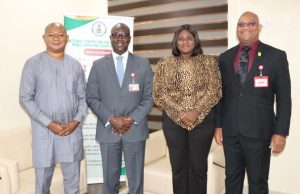
As a way forward to give the NCCSALW all the necessary supports and quickly move it to the next level, it cannot be overemphasized to call on the National Assembly here to do the needful and pass the Centre’s bill for onward transmission to the President for assent.
This should urgently be done to make Nigeria meet up with what the other 14 members of ECOWAS have done in that regard.
Above all, backing up the Centre with all the necessary supports will position it better to mop up and block inflow of illicit small arms and light weapons into the country.
This, will indirectly help overcome the troubling insecurity threats in Nigeria and enthrone the needed peaceful and safe environment for development.


